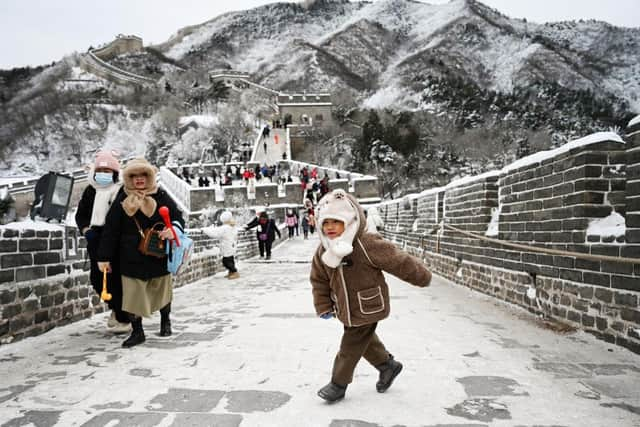Why China's One Child Policy has begun to backfire as Xi Jinping tries to encourage more births
After decades of its stringent One Child Policy, which aimed to keep the population of China at a manageable level, the country has now realised it has a problem.
The Chinese government said on Wednesday the number of babies born had fallen in 2023 for the seventh year in a row, to 9.02 million, down from 9.56m in 2022.
Advertisement
Hide AdAdvertisement
Hide AdLike many other nations, including the UK, China now has a larger number of older people and fewer young people who can work to support them, putting strain on an already under-funded healthcare system. The Beijing government now leads a nation that has more older people than anywhere else in the world, and that figure is growing.


The government is now encouraging young women to have more babies in an attempt to counteract the demographic shift – but is not having a lot of luck. Chinese leader Xi Jinping has urged his government to promote a “marriage and childbearing culture” and is now resorting to Communist tactics of a bygone era aimed at guilt-tripping women into reproducing – such as telling them they need to be patriotic “good wives and mothers” for the good of the country.
The method might have been effective back in the Iron Curtain days, but it is not cutting it now. In the 1970s and 1980s, Communist countries such as Romania banned contraception and abortion – and young women were checked at their workplace every three months for signs of pregnancy. However, in modern China, many women have enjoyed a high level of education and cosseted lives as only children – and are not willing to give it all up for motherhood.
China’s One Child Policy, introduced in 1979, was scrapped in 2015, when it was replaced by the Two-Child Policy. A couple of years before that, the original rules were relaxed slightly, allowing parents who are themselves only children to have a second baby.
Yet many families opted not to. They had got used to the idea of an only child, using money that would have otherwise been used to feed and clothe a second offspring, to enhance their only child’s education and life.
That has continued. Many young Chinese women are nervous about giving up their freedom to become mothers in a country that has moved to encourage a more traditional approach to the family under Mr Xi’s leadership. A new law that has made divorce less straightforward by requiring a 30-day cooling off period from when divorce proceedings begin, has made women even more reticent to get married – a trend that is evident in the falling marriage rates in China.
Mr Xi’s government is going to have to do what governments in the West have been doing for some time – sit down and crunch the numbers and figure out how to fund his country’s aging population. If he comes up with a good solution, he could find himself to be a very popular man.
Comments
Want to join the conversation? Please or to comment on this article.
